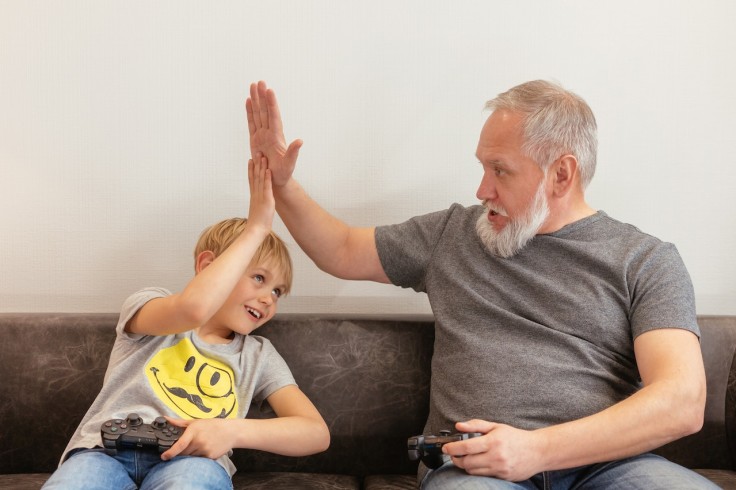
A parenting columnist and author argued in an op-ed that adults should not high-five children because a kid is not an adult's equal; thus, it can lead to disrespect and disobedience in the long run.
John Rosemond, a family psychologist, husband, father to two successful adults, and grandfather to seven children, wrote a recent opinion article for Omaha World-Herald and stated, "The child who is allowed to high-five an adult has tacit permission to talk to said adult as if they are peers. Do not wonder why, if you high-five your child, he often talks to you as if you are his equal."
Rosemond argued that learning respect for adults is crucial in every child's character development and that a high-five is not, in any way, "compatible with respect."
Never deny a child something as basic as a high-five
The said op-ed has gone viral, mainly in the Twitterverse, since it was published. Many parents raised their eyebrows and completely disagreed with what Rosemond wrote.
Forty-year-old mom of two, Christen van Haastert of Oregon, shared that her initial reaction wasn't anger towards the author but sadness towards his grandson, who was declined a simple high-five. The feeling of rejection could have been painful. She also felt frustrated that the way Rosemond sees children leaves them with few opportunities and voices to be seen and heard in their families. She described how, when she high-fives her kids, their eyes light up because they see that their mother is proud of them, and they are encouraged to try harder and better in the things challenging them. Touch can "solidify" feelings parents or adults hope to convey to kids.
Dr. Lisa Lindquist, a mom and psychiatrist, settling in Alaska, expressed that praise is one crucial and complex social tool to encourage a child's effort. She told Today that she disagrees that "gestures of respect" are exclusive and reserved for one a person perceives their equal and that respect can only be earned by showing one's superiority. The author's idea teaches obedience at best and yet contempt at worst.
Forty-one-year-old mom, school psychologist, and who has a doctorate in psychology living in Washington state, Nicole Kern, declared that Rosemond might be lacking some knowledge in how kids function. When a child seeks connection, denying them access to contact with adults, whether physical or emotional, is painful and unhelpful. She further proclaimed that she would never deny children "something as basic as a high-five."
Authoritarian parenting vs. authoritative
Melinda Wenner Moyer, science and parenting journalist, wrote her piece, sharing her thoughts about Rosemond's article.
She stated that the real problem is that the author misconstrued the science of parenting style.
Based on what he said, Moyer concluded that he is a fan of authoritarian parenting, which has the primary goal of producing obedient children, where they are expected to be seen but not heard. She went on to say that his parenting of choice is understandable since that was the parenting culture during his time. However, this approach is no longer suitable for kids.
She disagreed with Rosemond when he said that the only alternative to authoritarian parenting is parents losing all their control over their kids. Instead, Moyer introduces authoritative parenting, the parenting style that all parents and caregivers should aim for. In this approach, parents are still in charge, but children are treated with respect.
Research even shows that kids who grow up under this parenting style perform better in school, are more honest with their parents, are kind and compassionate, and have fewer behavioral problems than children who grew up under authoritarian parenting.
Today asked Rosemond for a reaction to his now-viral article, and the author said that he stands by his position about high-five despite all the negative comments thrown at him. He further expressed that the majority miserably failed to counter his opinion with intelligent opinions of their own. He is willing to engage in intelligent discussion about the subject, but he has yet to find any.
Related Article: Authoritarian Parenting Style May Lead to Depression in Latino Kids